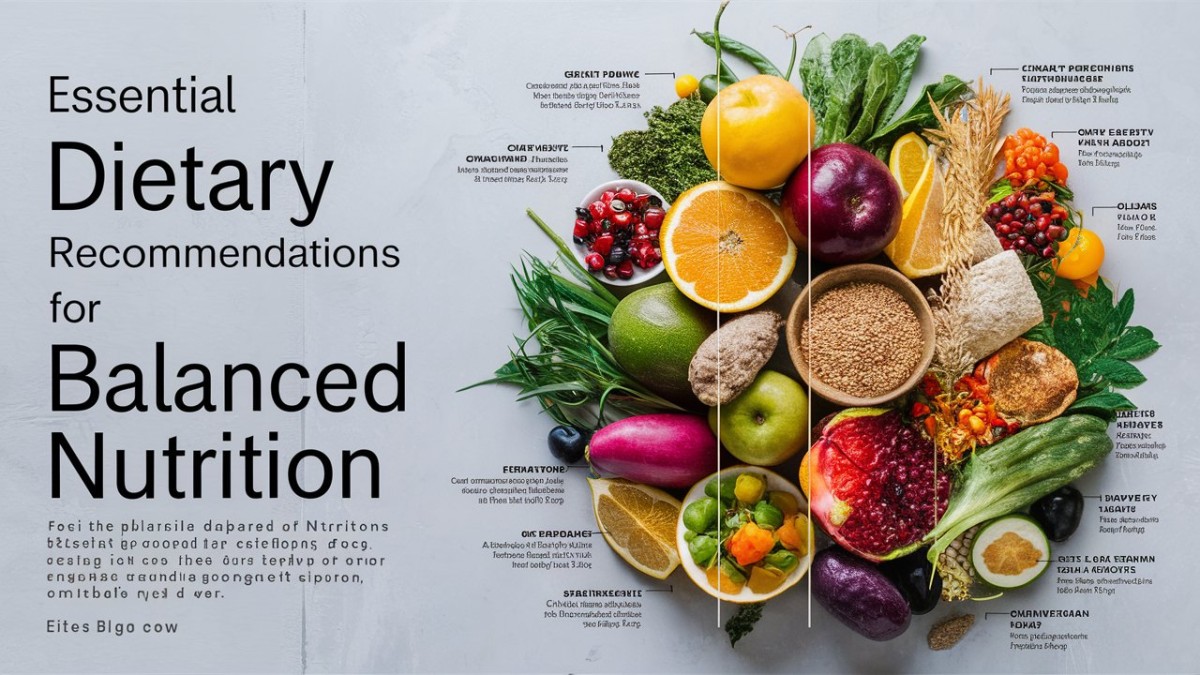Are you taking the recommended amount of proteins and vitamins in your diet?
Did you know that not taking enough amounts of macronutrients and micronutrients can lead to deficiency issues?
What? Yes, not taking enough vitamins and minerals can lead to deficiencies.
Oh! So what should I do now?
You need a basic idea of a balanced diet and the dietary recommendations explained in this blog.
Dietary recommendations for macronutrients and micronutrients:
Age |
Carbohydrates |
Proteins |
Fats |
Fibre |
Vitamin A |
Vitamin C |
Calcium |
Iron |
|
0-12 months |
60-95g |
9.1-11g |
30-31g |
5-10g |
375-500µg |
40-50mg |
40-50mg |
0.27-11mg |
|
1-3 years |
130g |
13g |
30-40g |
19g |
300µg |
15mg |
700mg |
7mg |
|
4-8 years |
130g |
19g |
30-35g |
25g |
400µg |
25mg |
1000mg |
10mg |
|
9-13 years |
130g |
34g |
25-35g |
26-31g |
600µg |
45mg |
1300mg |
8-15mg |
|
14-18 years |
130g |
46-52g |
25-35g |
26-38g |
700µg |
65-75 mg |
1300mg |
11-15 mg |
|
19-50 years |
130g |
46-56g |
20-35% of total calories |
25-38g |
700-900µg |
75-90 mg |
1000mg |
8-18mg |
|
51+ years |
130g |
46-56g |
20-35% of total calories |
21-30g |
700-900µg |
75-90 mg |
1200mg |
8mg |
|
Pregnant Women |
175g |
71g |
20-35% of total calories |
28g |
770µg |
85mg |
1000mg |
27mg |
|
Lactating women |
210g |
71g |
20-35% of total calories |
29g |
1300µg |
120mg |
1000-1300mg |
9-10mg |
Macronutrients
Carbohydrates
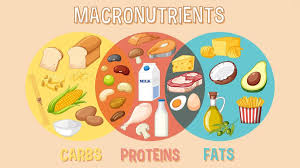 We all hear the name of carbohydrates in most diet plans such as the low-carb diet, a few diets reduce the intake of carbohydrates but a certain amount of carbohydrates is necessary for our bodily functions. Carbohydrates are considered a basic source of energy. The simple carbohydrates provide quick energy while the complex carbohydrates provide sustained energy.
We all hear the name of carbohydrates in most diet plans such as the low-carb diet, a few diets reduce the intake of carbohydrates but a certain amount of carbohydrates is necessary for our bodily functions. Carbohydrates are considered a basic source of energy. The simple carbohydrates provide quick energy while the complex carbohydrates provide sustained energy.
Benefits
Carbohydrates are essential for fueling the brain, and kidneys, healing muscles and the central nervous system. Also, fiber is one type of carbohydrate that helps in digestion and helps to regulate blood sugar levels.
Sources
Brown rice, quinoa, oats, apples, bananas, berries, sweet potatoes, carrots, and beans, lentils.
Proteins
We have all been listening to the sayings that include protein in your diet, protein-rich foods, etc. So, proteins are the building blocks of amino acids that our body cannot synthesize. They are necessary for building and repairing the tissues, producing enzymes and hormones, and most importantly supporting our immune system.
Importance
So as mentioned above proteins are highly important for the body to grow and repair muscles, enzymes, and hormone production and boost the immune system to fight against infections and diseases.
Sources
Chicken, beef, pork, fish, dairy products milk, cheese, yogurt, eggs, legumes beans, lentils, nuts, and seeds.
Fats
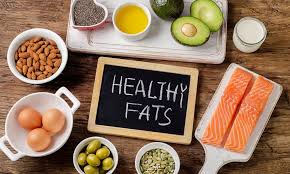 Fats are also one of the essential macronutrients that play a key role in hormone production and nutrient absorption. They can be regarded as important energy sources that are necessary for cell membrane integrity.
Fats are also one of the essential macronutrients that play a key role in hormone production and nutrient absorption. They can be regarded as important energy sources that are necessary for cell membrane integrity.
Importance
Fats are highly essential to be included in the diet as they support brain health, hormone production, and the absorption of fat-soluble vitamins (A, D, E, K). Also, fats are known to produce essential fatty acids that cannot be produced by the body.
Sources
Avocados, almonds, walnuts, chia seeds, flax seeds, olive oil, salmon, mackerel, and dairy products.
Micronutrients
Vitamin A
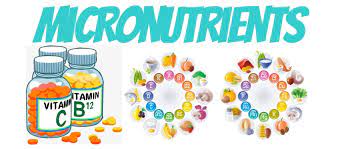 Vitamin A is essential for supporting vision, immune function, and skin health. Also, it plays a key role in cell growth and differentiation.
Vitamin A is essential for supporting vision, immune function, and skin health. Also, it plays a key role in cell growth and differentiation.
Sources
Carrots, sweet potatoes, spinach, kale, and liver.
Vitamin B
Vitamin |
RDA (Adults) |
Common Dietary Sources |
| B1 (Thiamine) | Women: 1.1 mg/day ; Men: 1.2 mg/day | Whole grains, pork, fish, legumes, nuts, seeds |
| B2 (Riboflavin) | Women: 1.1 mg/day; Men: 1.3 mg/day | Milk, eggs, lean meats, green vegetables, fortified cereals |
| B3 (Niacin) | Women: 14 mg/day ; Men: 16 mg/day | Poultry, fish, lean meats, peanuts, legumes, whole breads and cereals |
| B5 (Pantothenic Acid) | 5 mg/day | Chicken, beef, potatoes, oats, tomatoes, liver, kidney, egg yolk, broccoli |
| B6 (Pyridoxine) | 1.3-1.7 mg/day | Fish, beef liver, potatoes, starchy vegetables, non-citrus fruits |
| B7 (Biotin) | 30 mcg/day | Egg yolk, liver, yeast, avocados, soybeans, nuts, seeds |
| B9 (Folate) | 400 mcg/day | Green leafy vegetables, legumes, seeds, liver, fortified foods |
| B12 (Cobalamin) | 2.4 mcg/day | Fish, meat, poultry, eggs, milk, and other dairy products, fortified cereals |
Vitamin C
You might have heard to include vitamin C due to its numerous health benefits. Yes, vitamin C should be included in everyone's dietary routine as it boosts the immune system, promotes skin health, and enhances iron absorption into the body. Also, it helps to repair tissues and reduce inflammation.
Sources
Citrus fruits are key sources of vitamin C such as oranges, lemons, strawberries, bell peppers, broccoli, and brussels sprouts.
Calcium
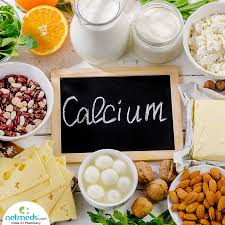 Calcium is highly essential for strong bones and teeth, muscle contraction, and nerve function. Also, it plays a key role in blood clotting.
Calcium is highly essential for strong bones and teeth, muscle contraction, and nerve function. Also, it plays a key role in blood clotting.
Sources
Dairy products are rich sources of calcium such as milk, cheese, yogurt, green leafy vegetables like kale, spinach, fortified plant milks, and almonds.
Iron
Eat iron-rich foods! Did your doctor suggest you include iron-rich foods in your diet? This is because iron is necessary for oxygen transport in the blood, energy production, and immune function. It best helps to prevent anemia, a condition that is characterized by fatigue and weakness.
Sources
Lamb, beef, and pork's red meat, chicken, turkey, fish, lentils, beans, pumpkin seeds, cashew nuts, sesame seeds, apricots, prunes, and fortified cereals.
Read more on diet
End note
This is the reason why a balanced dietary intake is highly essential, so do have a look at the key sources of food groups that you have a deficiency of. The required nutritional composition will keep you far from all types of deficiencies and diseases which is the major benefit of understanding the dietary recommendation. Follow the tips and enjoy a healthy life!
